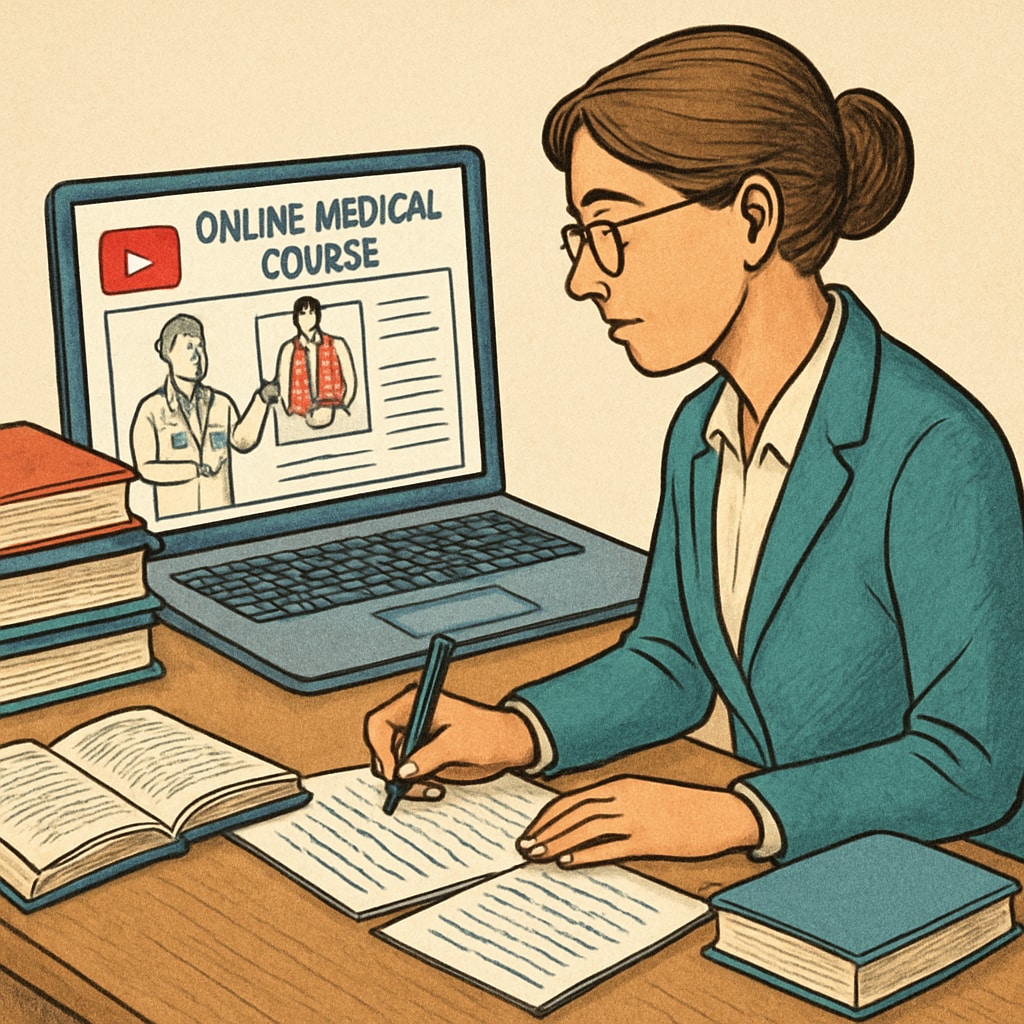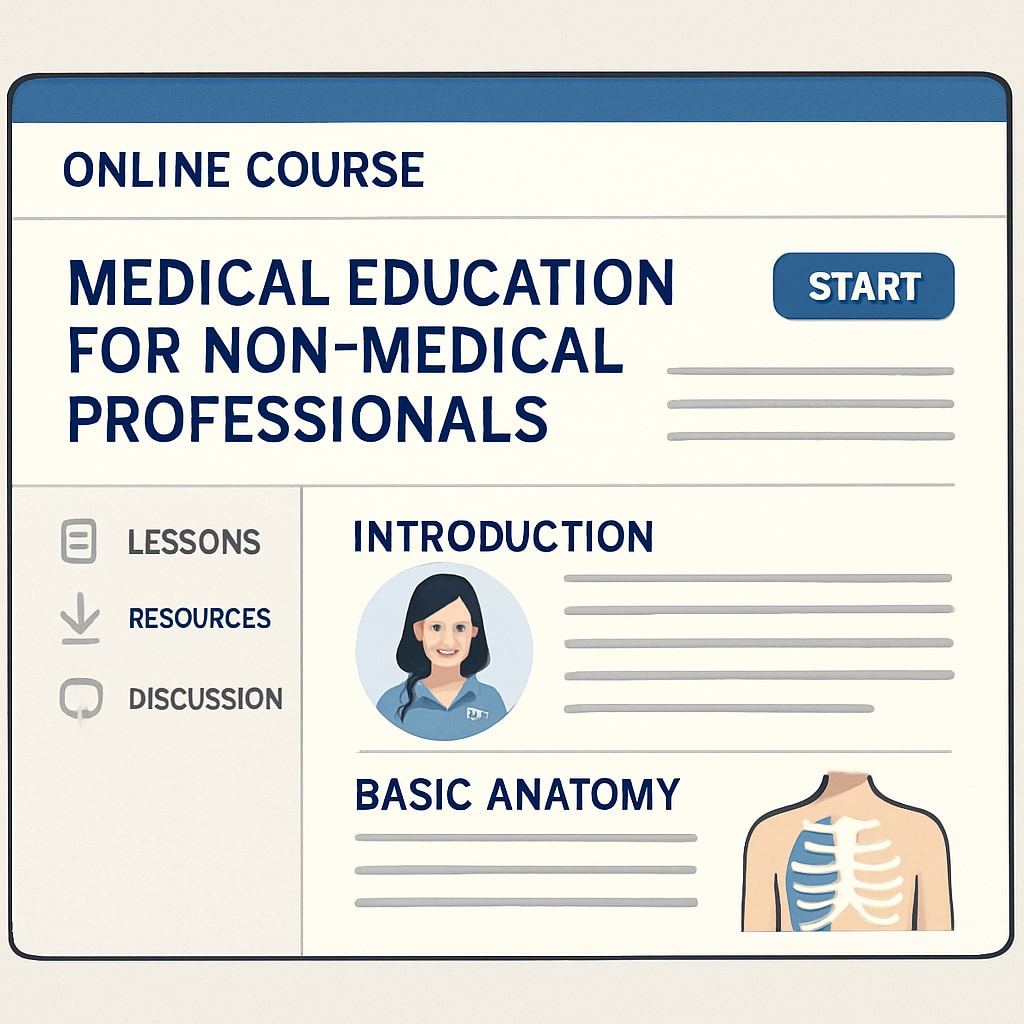For K12 educators venturing into medical education, the journey often begins with the challenge of finding resources that strike the right balance between “too advanced” and “too basic.” As non-medical professionals, it can be daunting to navigate the vast sea of medical knowledge. However, with the rise of specialized online courses and tailored learning frameworks, acquiring medical expertise is now more accessible than ever. This guide highlights effective strategies and resources to help educators bridge the gap between their teaching expertise and the medical field, empowering them to integrate advanced knowledge into their educational practices.
Understanding the Needs of Non-Medical Professionals
Before diving into specific resources, it is essential to identify the unique needs of K12 educators seeking medical knowledge. Unlike medical professionals, educators often require targeted insights that are directly applicable to their teaching goals. For example, a biology teacher may seek to understand human anatomy in greater depth, while a school counselor might focus on mental health topics.
To address these needs effectively, educators should consider the following questions:
- What specific medical topics align with my teaching goals?
- How much time can I dedicate to learning each week?
- What level of detail is necessary for my purposes?
Answering these questions will help educators choose resources that are not only relevant but also practical for their professional development.

Top Online Courses for Medical Education
Online platforms have revolutionized access to medical knowledge for non-medical professionals. Many courses are designed to break down complex concepts into digestible formats, making them ideal for educators. Here are some top platforms to consider:
- Coursera: Offers a wide range of medical courses, such as “Introduction to Human Physiology” by Duke University. These courses provide a foundational understanding of key topics.
- edX: Features courses like “The Science of Mental Health” by the University of Sydney, perfect for educators focusing on student well-being.
- Khan Academy: Known for its free, high-quality content, Khan Academy offers lessons on human anatomy and biology, ideal for K12-level educators.
Each of these platforms allows learners to progress at their own pace, making it easier to balance professional development with teaching responsibilities. In addition, many courses offer certifications, which can enhance an educator’s professional portfolio.

Strategies for Effective Learning
While access to resources is crucial, the way educators approach learning can significantly impact their success. Consider the following strategies:
- Set Clear Goals: Define what you want to achieve from each course or resource. For example, is the goal to gain a broad understanding or to master a specific topic?
- Utilize Multimedia: Combine text-based resources with video lectures, interactive quizzes, and hands-on projects to reinforce understanding.
- Engage with Communities: Join online forums or social media groups focused on medical education. Engaging with peers can provide valuable insights and support.
By adopting these strategies, educators can maximize the impact of their learning efforts and apply their new knowledge more effectively in the classroom.
The Role of Curated Frameworks
To further simplify the learning process, educators can rely on curated frameworks that tailor medical knowledge to non-medical audiences. These frameworks often include step-by-step guides, case studies, and practical applications designed to bridge the gap between theory and practice. For example:
- Anatomy on Wikipedia: A comprehensive overview of human anatomy, suitable for introductory learning.
- Medicine on Britannica: Offers detailed explanations of medical concepts in an accessible format.
These frameworks allow educators to focus on the most relevant aspects of medical knowledge, saving time and reducing the risk of becoming overwhelmed.
Conclusion
For K12 educators, learning medical concepts can open new doors for enriching their teaching practices and supporting students more effectively. By leveraging tailored resources, online courses, and strategic learning methods, non-medical professionals can bridge the gap between education and medicine. As a result, educators can confidently integrate advanced topics into their curricula, inspiring the next generation of learners to explore the wonders of science and health.
Whether you are exploring anatomy, mental health, or another specialized field, the journey begins with the right mindset and the right resources. Start today, and transform your classroom with the power of medical knowledge.


